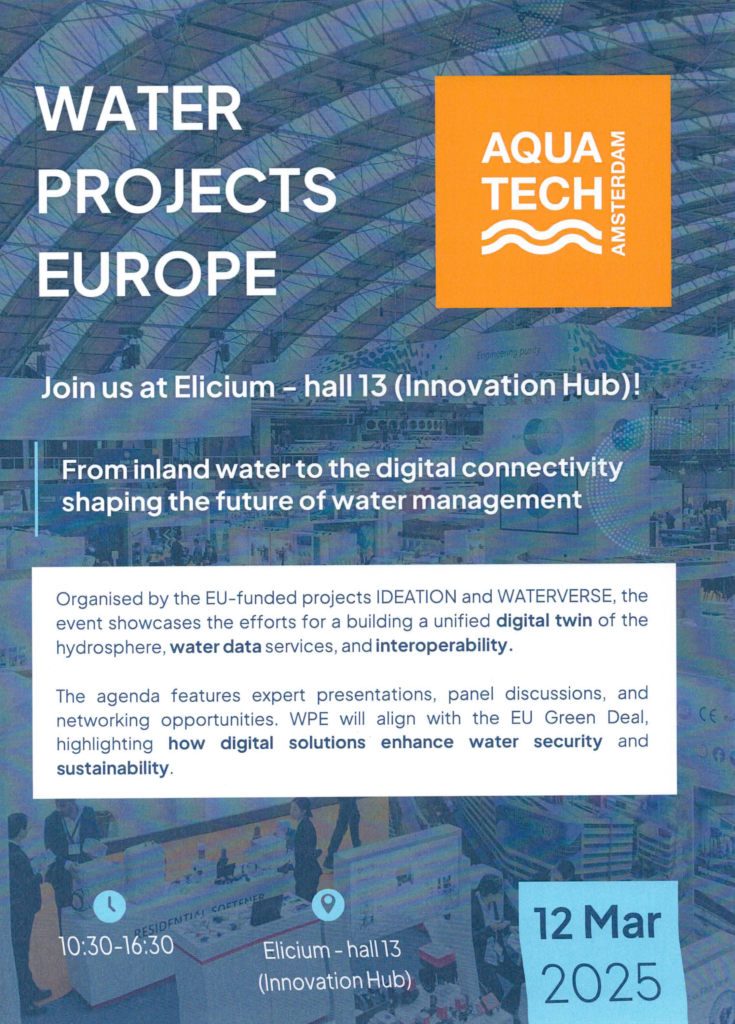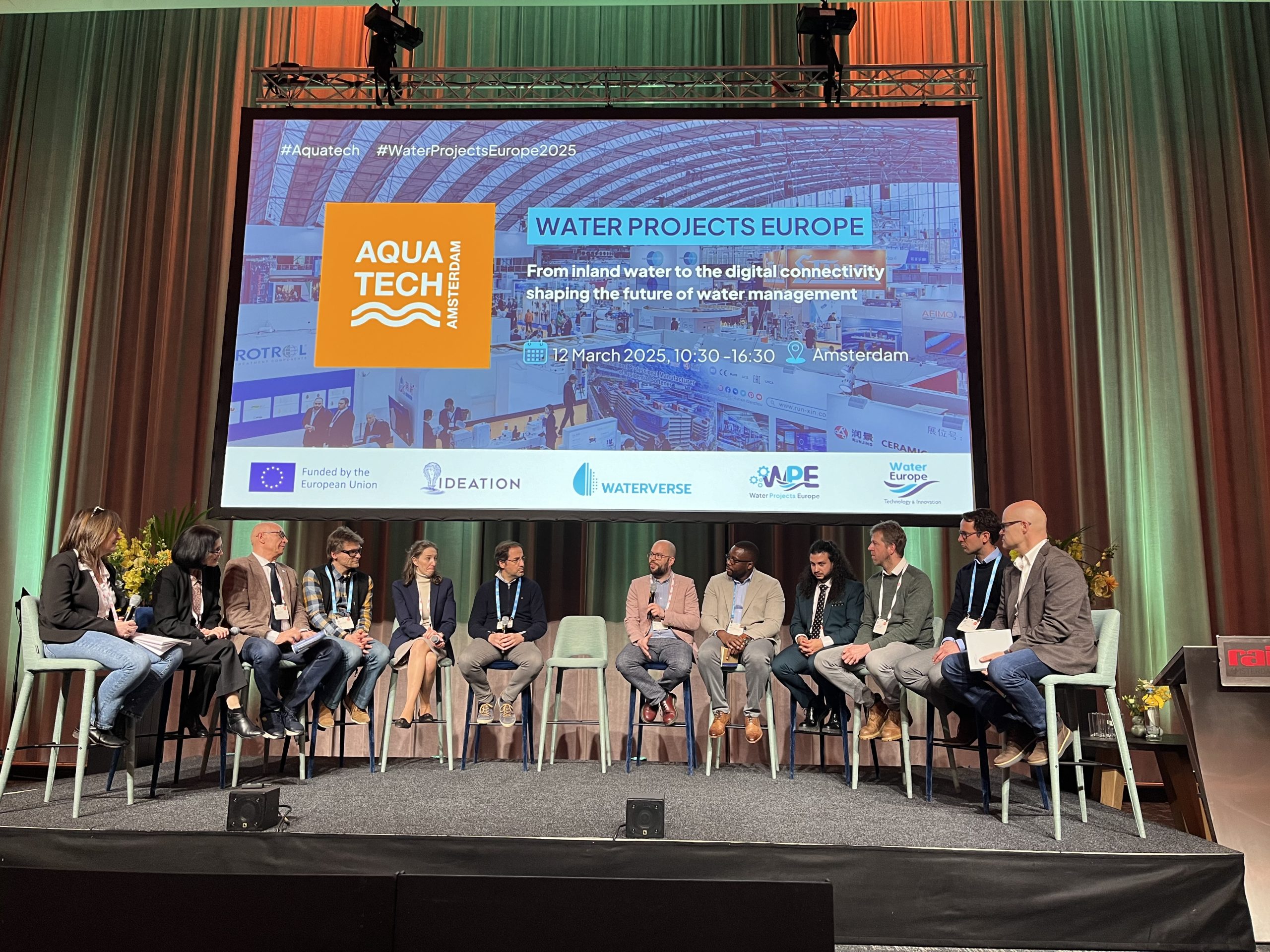
On March 12th, Luis Sánchez, Technical Coordinator of the SEDIMARK project, had the privilege of presenting at the Water Projects Europe Workshop on From Inland Water to Digital Connectivity: Shaping the Future of Water Management. The presentation was part of the session on Understanding Digital Water Management and Interoperability, focused on the SEDIMARK Project and its innovative approach that could fit into the needs and challenges of transforming water management through digital technologies.
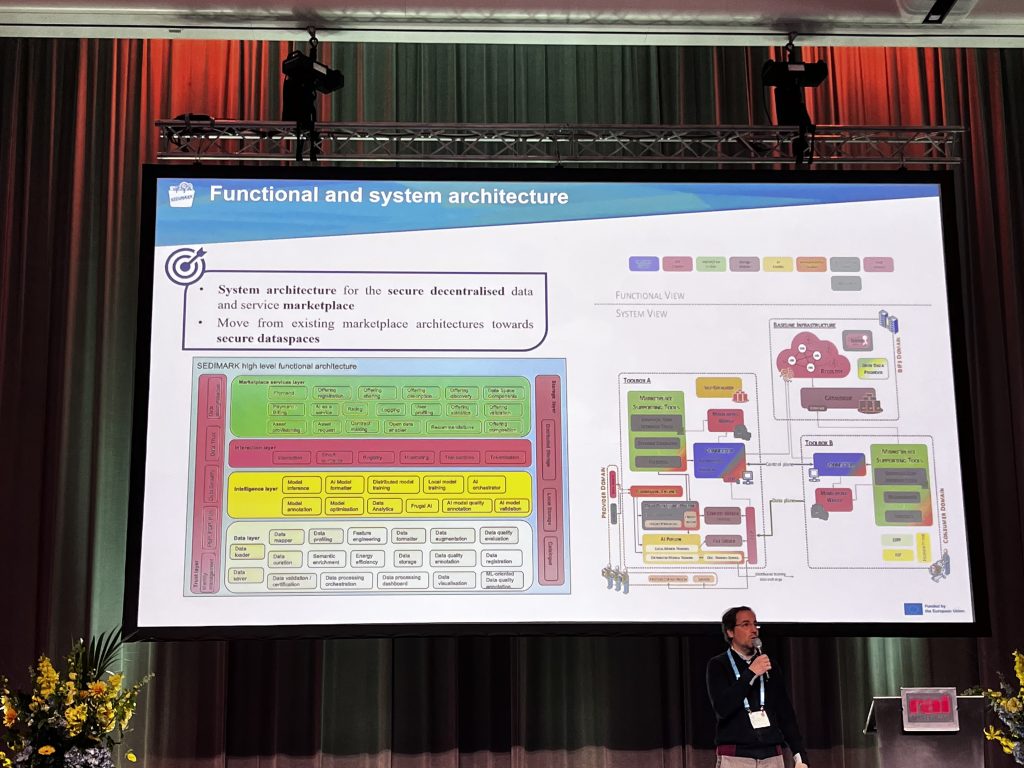
The SEDIMARK Project is developing a Distributed, Intelligent and Trustworthy Data Marketplace based on the Data Spaces paradigm. This platform enables seamless data sharing between stakeholders, such as governments, utilities, and researchers, by focusing on data interoperability, quality, and trustworthiness. By ensuring that data is accurate, transparent, and secure, SEDIMARK empowers informed decision-making, improving water resource management and fostering collaboration across sectors.
The SEDIMARK Project is pioneering the development of a Distributed and Intelligent Data Marketplace, a cutting-edge platform aimed at facilitating the seamless exchange of water-related data across various stakeholders, including governments, water utilities, researchers, and private companies. At the heart of SEDIMARK lies the Data Spaces paradigm—a new approach that enables data to be shared and exchanged across a range of sectors and industries while ensuring data privacy and security.
A primary goal of the project is to enhance data interoperability—ensuring that data from various sources can work together seamlessly to support decision-making. By leveraging data interoperability, SEDIMARK enables the integration of disparate datasets such as environmental data, water consumption data, and climate-related data, empowering stakeholders to make informed decisions based on a complete picture of water systems.
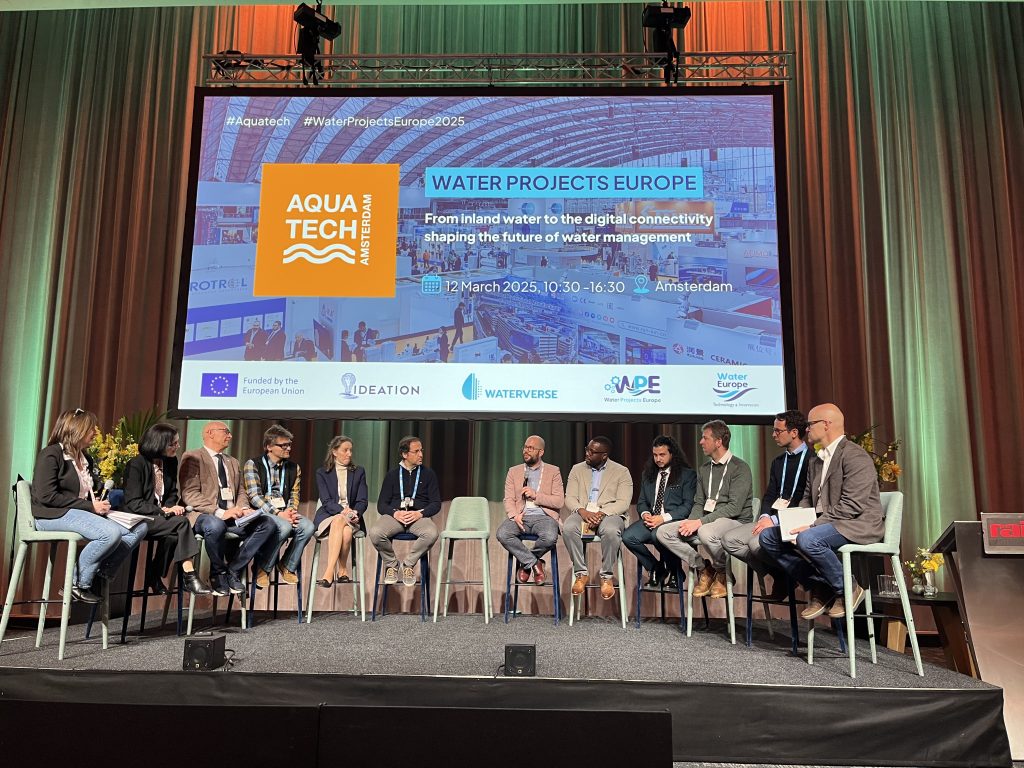
But, as we all know, data is only valuable if it’s trustworthy. That’s why the SEDIMARK Project places a significant focus on data quality and trustworthiness. Trust is a key enabler for the success of digital water management systems, and ensuring data quality, provenance, and transparency is essential to building that trust. The project employs mechanisms that ensure that data shared within the marketplace is accurate, verifiable, and useful for the end-users. One of the most exciting aspects of the SEDIMARK platform is its ability to support data exchange scenarios. Whether it's about sharing water quality data from rivers, monitoring urban water usage, or assessing the impact of climate change on freshwater availability, SEDIMARK offers a mechanism for exchanging this critical data across borders and sectors, thereby enabling better decision-making and more efficient water management practices.
Following the presentation, a dynamic closing round-table with other experts in the field of digital water management was organized. The significant barriers and challenges that organizations and stakeholders face when trying to implement digital and smart water management solutions were explored.
One of the major challenges that were discussed was the lack of standardized data formats and protocols, which often hinders data interoperability. Despite advancements in technology, different water management systems often use incompatible data formats, making it difficult for stakeholders to share and use the data effectively. Standardizing data formats and establishing common protocols for data exchange could go a long way in overcoming this issue.
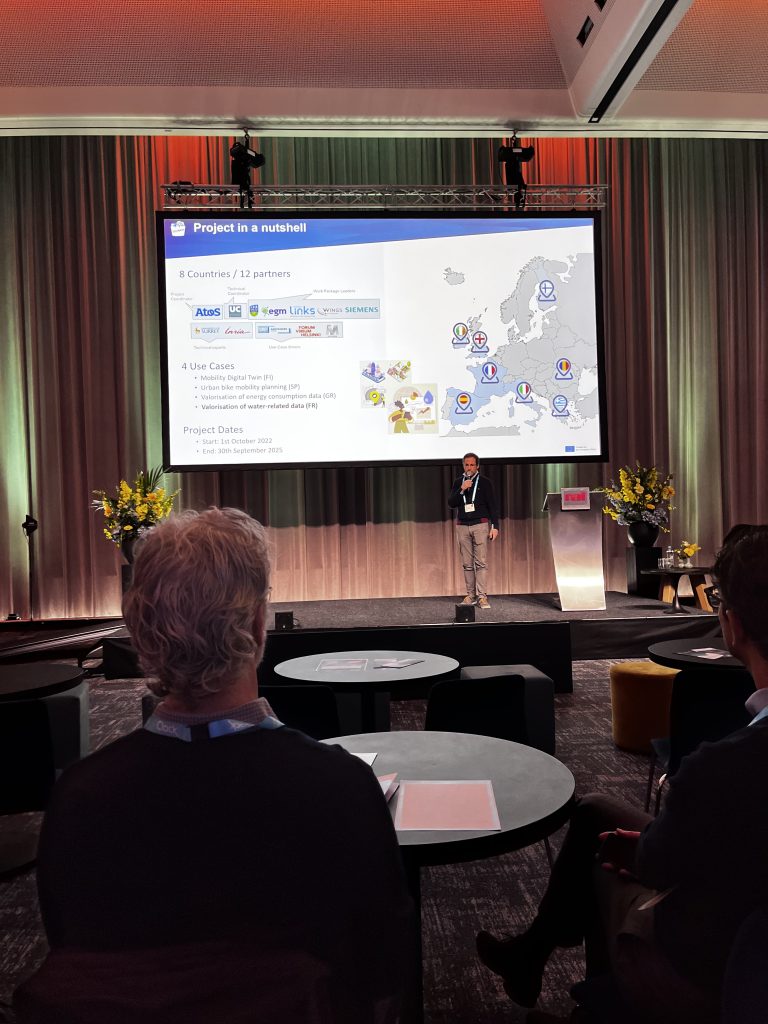
Another challenge raised was the resistance to adopting new technologies. Many organizations, especially in more traditional sectors like water management, are hesitant to embrace digital transformation due to concerns about cost, complexity, and the learning curve associated with new systems. Overcoming this resistance requires demonstrating the tangible benefits of digital water management solutions, such as improved resource efficiency, cost savings, and better environmental outcomes.
Lastly, the issue of data privacy and security was discussed. As water management systems become more interconnected, the amount of data being exchanged increases exponentially. This raises concerns about the protection of sensitive data, such as personal information or proprietary business data. Ensuring robust security protocols and establishing clear guidelines around data ownership and access are critical for fostering trust among stakeholders.
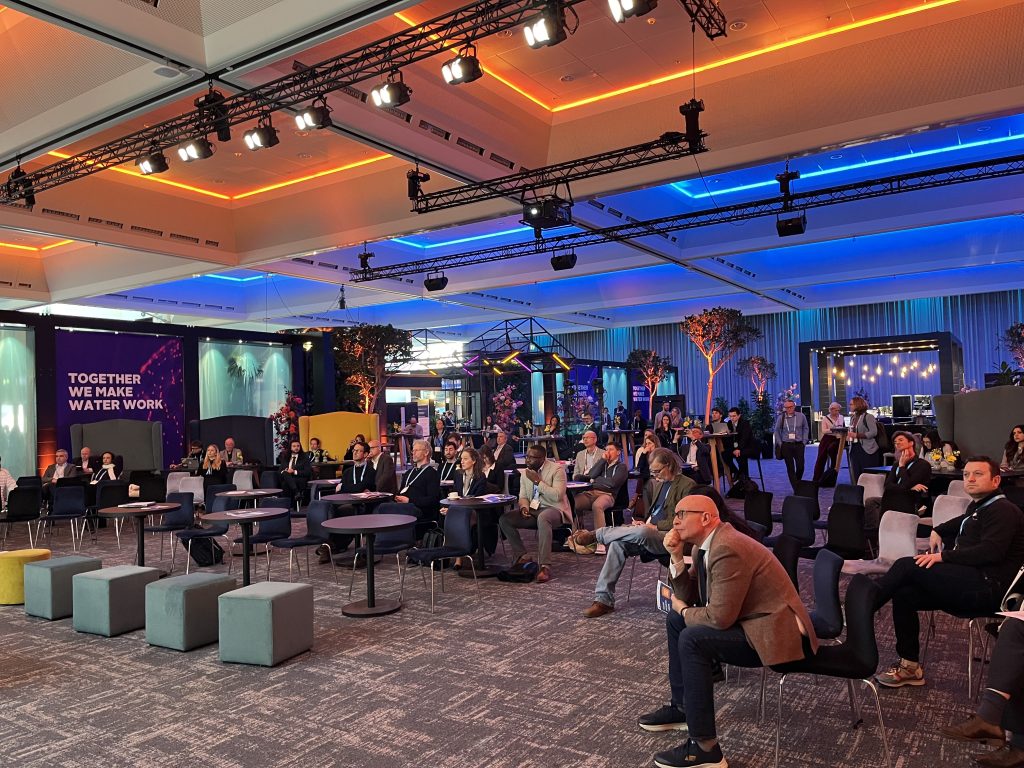
In conclusion, the workshop provided a valuable opportunity to discuss how digital connectivity is shaping the future of water management. The SEDIMARK Project and similar initiatives are laying the groundwork for a more interconnected, efficient, and sustainable approach to managing water resources. However, the road to fully digitalized water management systems is not without its challenges. Overcoming barriers like data interoperability, technology adoption, and data security will require collaborative efforts from governments, industry leaders, and technology developers.
Quoting our Technical Coordinator: “As I left the workshop, I felt optimistic about the progress being made in digital water management and excited about the role that the technological enablers that projects like SEDIMARK are developing will play in the future of sustainable water use and management.”
